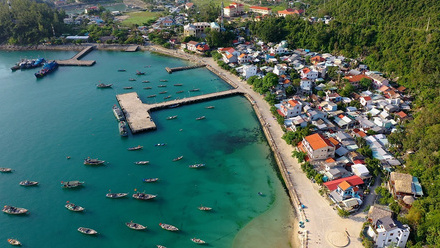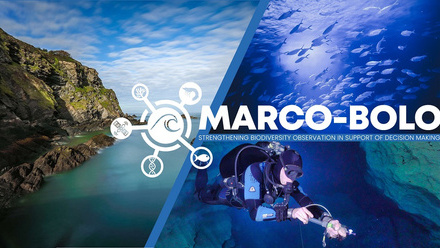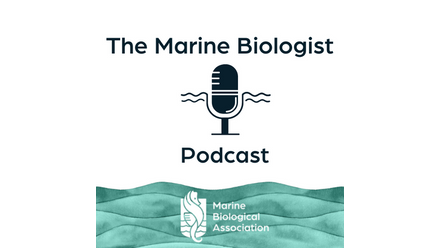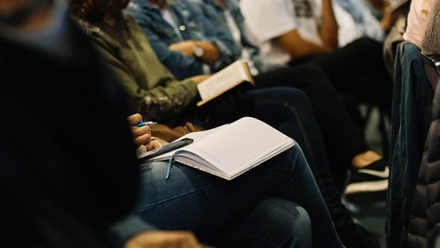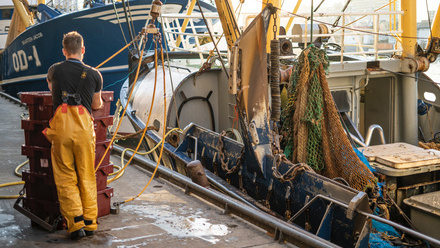Connecting head, heart, and hands for impact in the UN Ocean Decade
Are you frustrated by the slow response to science by policy, regulation, and some industries? Are you inspired by youth movements on the climate and biodiversity crises, yet unsure how to effect positive change? Or are you keen to make your mark but too swamped by teaching and grant-writing to consider all routes to impact?
Add to your repertoire through behavioural insights and diverse collaborations
Championed by the UN Decade of Ocean Science for Sustainable Development, some may dismiss ‘Ocean Literacy’ as a fad that will scutter its way to 2030 and be forgotten. Ocean Literacy (OL) once largely related to marine education and science communication, but its application in research, governance, and outreach has evolved into a much broader framework for social and cultural transformation. It can help close the gap between science and the transformative change that society and nature need.
People Ocean Planet (POP) is a behavioural change initiative aligning with OL principles. POP takes insights from psychology and sociology to accelerate climate action and sustainability. We fear tipping points in ecosystem function but seek the positive tipping points where public attitude and choices cascade into social and cultural norms. Appreciating the synergistic and catalytic relationships between society, democratic governments, and businesses leads us to debunk naysayers of accumulated individual, community, and local actions. We want to empower more scientists to reach beyond their comfort zones, to tackle the human dimensions of ocean challenges and opportunities through diverse collaborations in research, conservation, and outreach.
Ocean literacy and behavioural change
‘Behaviour’ change refers to tangible change in individual or group choices, be it aspects of lifestyle, consumption, or waste habits, or expressions of democratic freedoms.
‘Behavioural’ change also encompasses shifts in awareness/knowledge, values, attitudes, and intentions: positive outcomes that can underpin tangible behaviour change (Fig. 1).
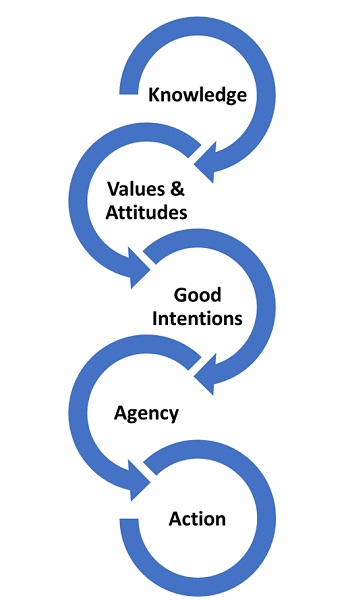
Figure 1. Behavioural change: precursors to tangible change include shifts in attitude and intentions.
The accepted definition of OL—‘An understanding of the ocean's influence on you and your influence on the ocean’— no longer reflects how the concept is applied. Informed by works such as Brennan et al. (2019)1 and McKinley and Burdon (2020)2, OL now extends to also recognize the importance of emotional and experiential connectivity with the ocean, and the ability and confidence to communicate issues accurately.
We conceptualize the need to MOTIVATE, SOCIALIZE, and EASE the change (Fig. 2)3:
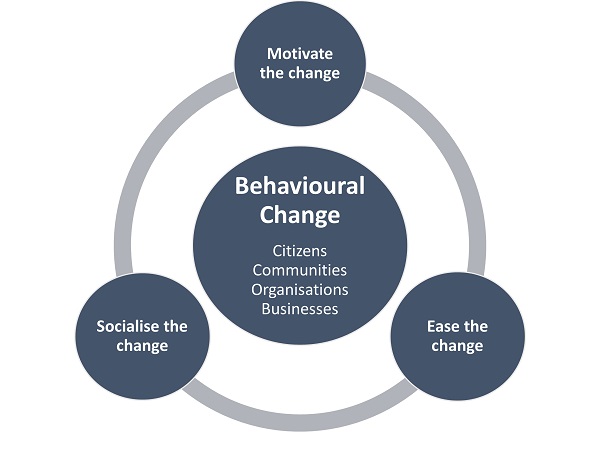
Figure 2. Motivate, socialize, and ease the change.
Box 1. Motivate, socialize, and ease the change
1. MOTIVATE with knowledge and experiences that inspire people to take choices and actions for ocean sustainability (close the ‘value-action gap’). Communicate and share science so it is relevant to people's lives and work. Emotive entry points can be useful, provided we don't lose sight of our scientific integrity. Seek collaborations with artists and cultural venues for impactful public engagement (e.g. Fig. 3).
2. SOCIALIZE through the power of social norms, social identity, and our tendency to be influenced by the people around us. Helping people make their personal changes known and visible in their family and social groups can be powerful, as can education and engagement in social contexts where people reveal their shared values. Some sociologists refer to a ‘25% rule’… whatever the tipping point from minority movement to social transformation, it's probably closer than you think.
3. EASE barriers to behaviour change, which may be fiscal (i.e. innovate for affordability), informational (i.e. provide accessible guidance; or data/indicators for better eco-labelling), infrastructural (i.e. recycling facilities), or governmental. On the latter, social research extends to opportunities for an ocean-literate society to influence governance. Are marine planning and management processes enabling an informed public voice as a legitimate stakeholder?
Making the invisible indivisible from its human drivers
BBC's Blue Planet 2 boosted awareness of the fate of much single-use and unrecycled plastic. While we continue to struggle with the legacy of past misdeeds, and work remains to curb further plastic waste, in a short period we have seen extensive grassroots action, activism, new research and innovation, corporate commitments, policy shifts, and new legislation.
The plastic problem is visible, tangible, and readily connected to our lives, what we consume, and what we waste. How do we trigger similar shifts in awareness, concern, ambition, and action (and funding) on the other big ocean issues? Climate change, seafood sustainability, and deep-sea mining remain out of sight and out of mind for most. Can we work with people who understand people (e.g. social scientists, communication and public engagement professionals) to boost the social and cultural impact of research and outreach activities?
Collaborate outside your comfort zone
‘A ship in harbour is safe, but that is not what ships are built for’4. As marine scientists, we are comfortable amongst other scientists, but expanding our collaborative horizons can bring new and bigger impacts.
The POP initiative has collaborated with diverse organizations and individuals in its first couple of years, spanning the natural and social sciences, arts and media, charitable, youth and civil society organizations, educators, and cultural venues. An initial focus on public engagement in marine and climate science has provided rewarding and interesting partnerships with the cultural and creative sector (Fig. 3). Working with artists created the most uncertainty, seeking the balance between directing the work and allowing creative freedoms. We have discovered the merits of arts-based engagement and, despite inherent difficulties in measuring impact, the academic literature proclaims its huge potential to reach people in memorable and influential ways. For us, it provided useful emotive entry points, with audience surveys starting to reveal its capacity to trigger greater concern, but also develop public awareness, attitudes, and even positive behaviours.
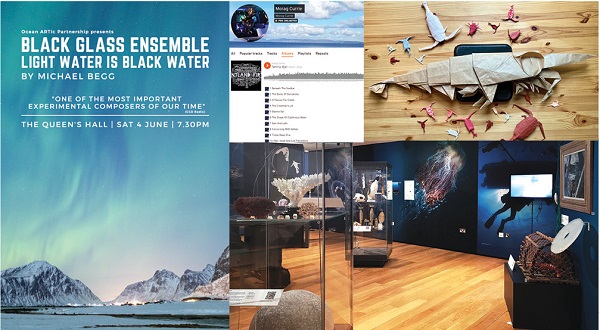
Figure 3. POP projects included ‘Light Water is Black Water’, an experimental music composition with climate models as its raw material (left, poster for June 2022 show). Taming Ægir created socially engaged music weaving a narrative of opportunities for marine renewable energy (middle top). The Dive-In exhibition linked marine science to behaviour change asks (bottom right). The Mapping Ocean Change through Art (MOCA) project uses participatory art workshops to explore the science of food chains and migration routes (top right: plankton origami [© Neil Banas] made in workshops).
Coming soon and next steps…
POP exists not only to initiate, deliver, and contribute to projects that drive behavioural and ocean literacy outcomes, but also to enable and encourage others to do the same. Look out for our prototypic networking tool to inspire and enable new collaborations across sectors and disciplines, with marine scientists at its heart.
We also aim to develop the social and interdisciplinary research capacity, with links to policy and practice across varied issues and sectors. Key allies in this include the Global Ocean Literacy Research Community and the Marine Social Science Network. These grow in strength as they reflect the need for people-based and socially engaged solutions, increasingly recognized by authoritative sources like the United Nations, the European Union, the IUCN, and funding councils.
About POP
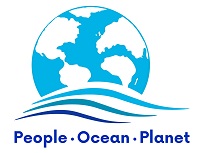
POP is a behavioural change initiative from MASTS, rooted in Scotland's marine science community but with no geographic boundaries and an interdisciplinary approach to tackling global challenges for the ocean environment. We aim to bridge gaps through research, outreach, and more: from knowledge to empathy and optimism, and from good intentions to action. See www.peopleoceanplanet.com and follow @OceanBehaviours on Twitter. POP_MASTS@st-andrews.ac.uk
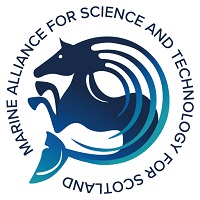
Dr Chris Leakey, Coordinator of People Ocean Planet between September 2019 and May 2022 (seconded to MASTS from NatureScot).

